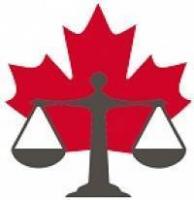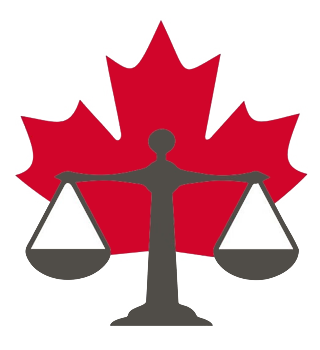
SCC decision on call duty - AJC: The little union that could!
Monday, November 6, 2017
On Friday, the AJC scored a victory in the SCC for our members! The full text of the decision can be found here.
Essentially, the court concluded that the adjudicator's "assessment of the different interests at stake and ultimate balancing of them was reasonable". In other words, management's unilateral imposition of standby duty on us in the face of the government negotiating standby duty provisions in other federal government agreements was considered unfair and unreasonable, in violation of the management rights clause.
We however lost our argument on the section 7, Charter argument, but we are pleased for the additional clarity provided by the court. It should be noted that we were also awarded costs.
A short recap on how we got here:
May 2010 - The AJC files 2 policy grievances (one for Montreal and one for Toronto - all in relation to immigration legal services) and about a dozen individual grievances, all of which are held in abeyance while the Montreal policy grievance is advanced.
November 28, 2011 - The adjudicator rules on employer preliminary objection for want of jurisdiction
July 22, 2013 - Federal Court grants our application for judicial review with costs and remits the question back to a new adjudicator
April 2, 2015 - The new adjudicator, Stéphane Bertrand, rules in AJC's favour both in terms of section 5.02 (management rights clause) and section 6 of the collective agreement regarding section 7 Charter protection. Please read our communique on that victory here.
March 23, 2016 - The Federal Court of Appeal rules with the Employer and that is the subject of today's SCC ruling.
What does this all mean for AJC members?
The FCA ruling that we appealed to the SCC allowed the employer to unilaterally require lawyers to be on call duty without any form of negotiated compensation. Today's ruling clarifies that the employer can no longer do that. This means that the declaration of adjudicator Bertrand in relation to article 5.02 of the 2011 collective agreement still stands: The employer's standby duty directive is unreasonable and it contravenes clause 5.02 of the applicable collective agreement.
As for Mr. Bertrand's order to cease applying the standby duty directive in question as of the date of his 2015 decision, Treasury Board has maintained that this order is not applicable to the current collective agreement which expired in 2014 but which remains in effect. As a result, in 2015, after Mr. Bertrand's decision was issued and Treasury Board refused to comply with the order, the AJC filed a new series of call duty policy grievances. Copies are linked here and cover the whole of the membership who might be unilaterally required to be on standby with restrictions to their off-duty activities. These cases were referred to the FPSLREB and until recently were put on hold while we awaited the Supreme Court of Canada ruling.
On Friday, we requested a meeting with TB officials on an urgent basis to get their views and determine whether there is a way of resolving these grievances and the issue of standby duty once and for all. TB has maintained that call duty should not be negotiated until the Supreme Court pronounces itself. Now it has. It is therefore our sincere hope that TB, whose practice the Supreme Court confirmed was unfair and unreasonable, will finally resolve the call duty issue through mutual dialogue.
Should our attempts prove unsuccessful, the AJC will be asking the FPSLREB to schedule adjudication dates as soon as next week.
In summary, this all means that we have not yet hit the end of the road. This 7-year struggle continues until we manage to find a mutually acceptable resolution with the employer or obtain a definitive outcome through the binding conciliation or grievance process. Please be advised that we have asked our counsel to share the ruling with our binding conciliation panel.
For those who are on standby duty above and beyond Immigration Legal Services, and not receiving any form of compensation in return, you are encouraged to share this SCC decision with your manager and indicate to your employer that it is no longer permitted to unilaterally impose standby duty without the benefit of additional compensation that needs to be negotiated by the parties. Ask your managers if they are agreeing to compensate you or if they are going to have the work performed by someone else.
For more information or advice on your specific circumstances, you are encouraged to fill out an incident report and forward it to admin@ajc-ajj.com .
The AJC feels strongly that management's continued unilateral imposition of uncompensated standby duty cannot continue given the Supreme Court ruling. It is unfair and unreasonable even under the current agreement and Standby duty must be negotiated.
Quotes from the SCC ruling:
Paragraph 35:
"The directive affected how the lawyers lived their lives outside of work in a way that was not contemplated in either the collective agreement or in their contracts of employment. The adjudicator found this unfair, stating that "Instead, it would be fair for [the lawyers] to be compensated for the time during which the employer continues to exercise a certain control over their lives" (para. 45)."
Paragraph 36:
"While standby duty may not be taxing or onerous work, it is a period of time during which the employer exercises a degree of control over the movements and activities of the lawyers. This exercise of control benefits the employer, who might otherwise have to employ lawyers to work evening and weekend shifts to ensure a timely response to urgent applications."
Paragraph 38:
"There was no standby clause in the recently finalized collective agreement, no mention of the requirement in the lawyers' employment contracts or job descriptions, nor were similar policies the norm in the sector. I agree with the adjudicator that the fact that the directive affects the lawyers' lives outside of working hours is a significant factor in the assessment of the directive's impact on employees. And as the adjudicator noted, there is some apparent unfairness in a policy or directive that unilaterally withdraws compensation for standby duty, when the provision of such compensation had been a long-standing practice. In my view, the adjudicator's conclusion that the standby directive did not conform with clause 5.02 of the collective agreement fell within the range of reasonable outcomes."
Paragraph 42:
"It chose to address this organizational need through mandatory, unpaid standby duty, as opposed to other possible approaches (such as a flexible work scheduling approach or compensation for standby)."

